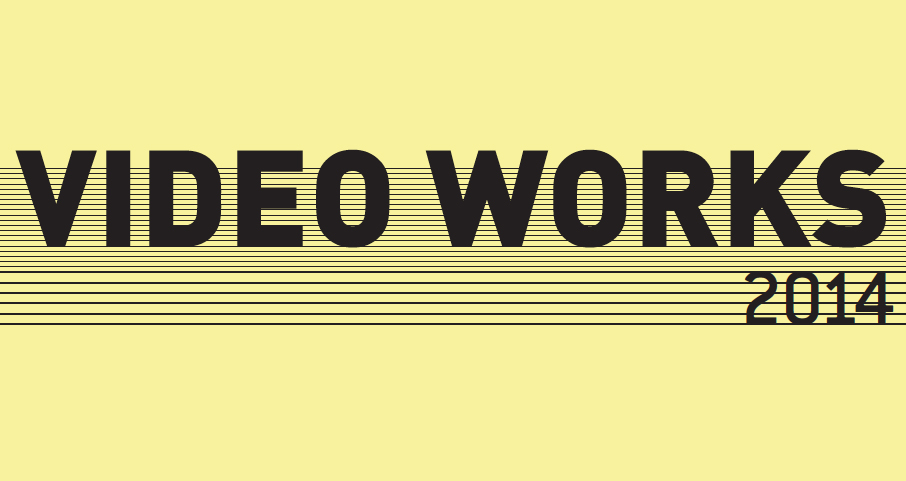More Info
Sunday, April 6
8 pm غِشاء a thin soft layer of… | Jad Youssef
9 pm Mondial 2010 | Roy Dib
9:20 pm BREAK
9:30 pm Judith | Romain Hamard
10 pm Have You Ever Killed a Bear? or Becoming Jamila | Marwa Arsanios
Monday, April 7
8 pm Nawal’s Rituals | Sarah Francis
8:15 pm FRAGMENTS (of a film in the making) | Raed Rafei
8:45 pm BREAK
9 pm E Muet | Corine Shawi
Tuesday, April 8
8 pm Mapping Place Narratives: Beyhum Street | Nadine Beckdache and Juma Hamdo
8:35 pm Golden Rush | Chloé Griffin and Siska
9:15 pm BREAK
9:30 pm The Sheikh Imam Project | Gheith Al-Amine
9:40 pm Syria: Snapshots of History in the Making | Abounaddara Collective
Abounaddara is a collective of self-taught filmmakers founded in Damascus in 2010, involved in emergency cinema anonymously and on a voluntary basis. Since April 2011, the collective has been producing and broadcasting online a short feature every Friday as a contribution to the revolution in Syria. More than 50 of these films were selected to participate in international film festivals such as Mostra de Venise, Festival du Nouveau Cinéma (Montreal), Doclisboa (Lisbon), Hand Belfort International Film Festival, and Human Rights Watch Film Festival (London). The collective won the 2014 Sundance Film Festival Short Film Grand Jury Prize for Of God and Dogs.
Gheith Al-Amine is a video artist, born in Beirut, Lebanon in 1973.
He completed his BA and Maitrise in video art and cinema at the Holy Spirit University of Kaslik (USEK). He collaborated with Paola Yacoub and Michel Lassere on the project OV (Venice Biennale, 2003). He directed the videos Once Upon a Sidewalk (2009), T.S.T.L. (2011), King Lost His Tooth (2012). His videos were selected in the Berlinale, Chicago International Film Festival, Melbourne International Film Festival, Oberhausen International Short film Festival, Cinemed. Al-Amine also wrote articles for Arab cultural supplements including Zawaya, Nawafez and Al Akhbar on music, contemporary art and video art. He produces and hosts a jazz program, “Carrefour de Jazz” on Radio Liban/ R.F.I., 96.2 FM.
Marwa Arsanios lives and works in Beirut. She obtained her MFA from University of the Arts, London (2007), and was a researcher in the fine art department at the Jan Van Eyck Academy (2011-2012). Her work has been widely presented, including at Forum Expanded (Berlinale, 2010); Rio de Janeiro Film Festival (2010); the e-flux storefront (New York, 2010); Centre Pompidou (Paris, 2011); 12th Istanbul Biennial (2012); Home Works 6 (Beirut, 2013); NGBK (Berlin, 2013); and MuKHA (Antwerp, 2013). She has been a resident at the Arab Image Foundation (2009) and Tokyo Wonder Site (2010), and was a Special Prize Winner of the Future Generation Art Prize 2012. Arsanios is a founding member of 98weeks research project/space.
Nadine Bekdache is a graphic designer and urban researcher. She uses mapping both as a research method and a communication tool. Mapping Place Narratives: Beyhum Street is her first attempt at using film to complement a research on the depoliticizing of rent control and its spatial manifestations. She recently started a design/research collective.
Juma Hamdo was born in 1984 in Kobani, Syria. He graduated from the University of Damascus with a BA in Media Studies. Since 2008, Juma has been working as a freelance director and researcher. He has directed several independent short documentaries and experimental video projects. Juma is currently working on his mid-length documentary Rude Refugee Diaries – Beirut.
Roy Dib is an artist and art critic. His work focuses on the subjective constructions of space. He was co-founder of the theatre group Zoukak (2006–2009). Dib has participated in Video Works (Beirut, 2011); The Garden of Eden, Palais de Tokyo (Paris, 2012); Home Workspace Program, Ashkal Alwan (Beirut, 2011-12); the 18th edition of Videobrasil (Sao Paulo, 2013); and the 64th edition of the Berlinale (Berlin, 2014). His film Mondial 2010 won the Teddy Award for Best Short Film in 2014. He currently writes for the cultural section in Al Akhbar newspaper (Beirut).
Sarah Francis lives and works in Beirut. She graduated from IESAV (Institute of Scenic, Audiovisual and Cinematographic Studies, Saint Joseph University, Beirut), and later participated in several international workshops. Since 2006, she has been working as a freelance director for several production companies. Her first feature documentary Birds of September premiered in the official selection of CPH:DOX (Copenhagen, 2013) and was shown in Dubai International Film Festival that same year. She is currently working on a documentary within the framework of DOX:LAB (CPH:DOX)."
Chloé Griffin is a Canadian filmmaker and visual artist. She was born in 1978 in El Cajon, California (USA).
Siska is a filmmaker and visual artist born in 1984 in Beirut, Lebanon. He lives and works between Berlin and Beirut.
Romain Hamard was born in 1986. He lives and works in Beirut, Lebanon.
Raed Rafei is a filmmaker, writer and multimedia journalist, born in 1977 in Tripoli, Lebanon. He is interested in reality, fiction and what lies in between. His feature film 74 (The Reconstitution of a Struggle), which he co-wrote and co-directed with Rania Rafei, was premiered at the Marseille International Festival of Documentary Film (FID), where it was awarded the GNCR prize. The film also won the prize for Best Film at Olhar de Cinema ¬– Curitiba International Film Festival (Brazil), and for Best First Film at Tetouan Film Festival (Morocco).
Corine Shawi was born in 1981 in Lebanon. Her first feature documentary Les femmes bonnes observed the life of Doulika and other Sri Lankan women. She has also directed several short documentaries such as Daniela (2006) questioning the body and gender identity, and Affinity (2007) that reflects on the boundaries of friendship. Her recent films include Film of Welcome and Farewells (2009) and Je t’aime infiniment (co-directed with Nikolaj B.S. Larsen, 2010). She teaches at IESAV (Institute of Scenic, Audiovisual and Cinematographic Studies, Saint Joseph University, Beirut) and at ALBA (The Lebanese Academy of Fine Arts, University of Balamand).
Jad Youssef was born in 1989 in Beirut. He graduated from IESAV (Institute of Scenic, Audiovisual and Cinematographic Studies, Saint Joseph University, Beirut) in 2013.
DCP | 45” | 2014 | Arabic and French with English subtitles
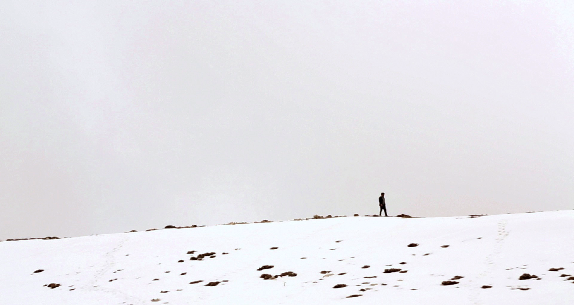
Najib is a 35-year-old man living alone in Beirut. His daily routine consists of a series of phone calls with his girlfriend whom, for unknown reasons, he cannot see. He is constantly waiting for her, and tries to fill his time with work, watching the videos that his students have made. He focuses on one student, whose videos leave him perturbed.
With Nasri Sayegh, Stephanie Sotiry, Hassan Youssef – Director of Photography Mohamad Berro – Sound Design: Mohamad Khreizat – Script: Jad Youssef – Editing: Jad Youssef and Nour Ouayda
DCP | 19” | 2013 | Arabic with English subtitles
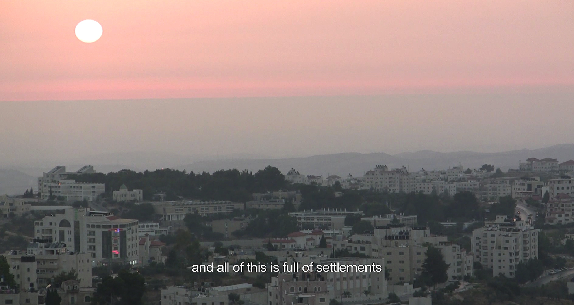
Mondial 2010 is a film on love and place. A Lebanese couple decides to take a road trip to Ramallah. The film is recorded with their camera as they chronicle their journey. The viewers are invited through the couple's conversations into the universe of a fading city.
With Abed Kobeissy and Ziad Chakaroun – Sound Engineering: Fadi Tabbal and Stephane Rives (Tunefork Recording Studios)
DCP | 27” | 2014 | English with Arabic subtitles
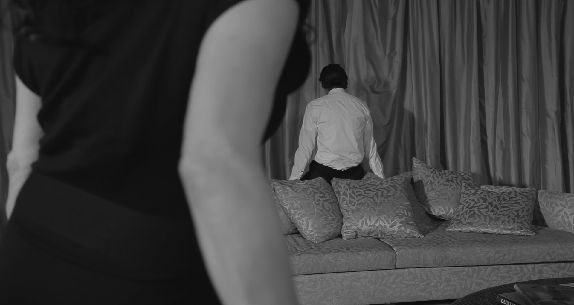
In a huis clos in an unspecified city, two characters in a hotel room begin a discussion on love, hate, life and death. Interpreted by Julia Kassar and Jadd Tank, the film proposes an adaptation of the voice-over of The Savage Eye, a documentary realized in 1960 in Los Angeles by Ben Maddow, Sydney Meyers and Joseph Strick.
With Julia Kassar and Jadd Tank – Realisation: Romain Hamard – Director of Photography: Zein el Cheikh – Dialogue: Adapted from “The Savage Eye” (1960) by Ben Maddow, Sydney Meyers and Joseph Strick
DCP | 29” | 2014 | Arabic with English subtitles
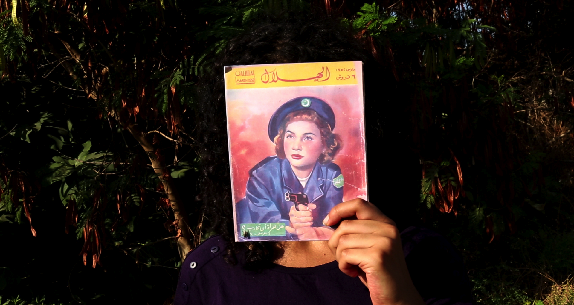
This film was developed from a lecture performance realized in 2013, and is part of a larger research around Al Hilal magazine (Cairo) that also includes a book and an installation. It takes the history of the magazine (‘50s and ‘60s collection) as the starting point for an inquiry into Jamila Bouhired, the Algerian freedom fighter. From the different representations of Jamila in cinema to her assimilation and promotion through the magazine, the film attempts to look at the history of socialist projects (Egypt), anti-colonial wars (Algeria), and the way they have promoted and marginalized feminist projects. The clear gender division used to marginalize women from the public sphere was overcome for a short moment during the Algerian war of independence (Jamila becoming its icon). Different voices and material are used to explore this history. What does it mean to play the role of the freedom fighter? What does it mean to become an icon? And how does the constitution of the subject serve certain political purposes?
With Jessika Khazrik – Director of Photography: Karam Ghossein
DCP | 14” | 2014 | Arabic with English subtitles
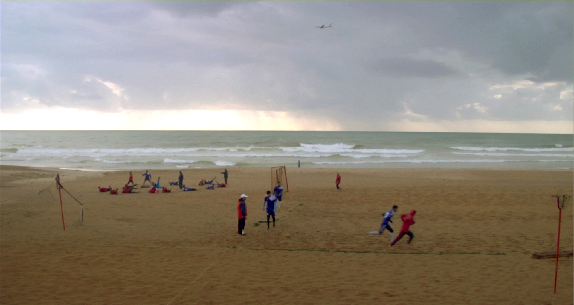
A woman and a man meet regularly on the beach. She talks, he doesn’t. Isolated from the space and confused by his silence, she tries to make sense of his behaviour, and of her thoughts. The film witnesses three of their encounters. In between, the beach waits.
With Salam Hammoud as Nawal
DCP | 27” | 2014 | French and Italian with English and Arabic subtitles
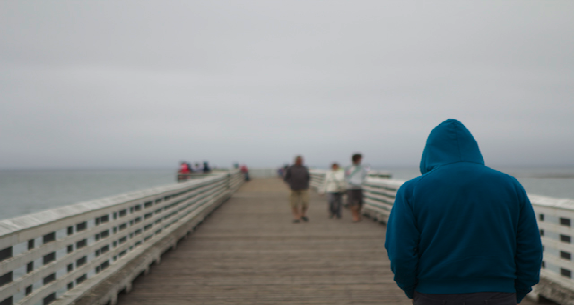
A couple embarks on a road trip through different time zones in an impossible attempt to blur all real and imaginary boundaries separating them.
DCP | 52” | 2013 | Arabic with English subtitles
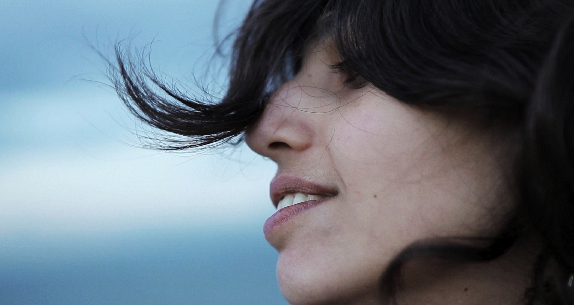
Nanou's first true love story comes to an abrupt end. Rajwa treads carefully into a monogamous relationship. From 2008 to 2013, the filmmaker accompanied them through their stories of passion and anguish, carrying with them their determination to arrive at the heart of things: to enter the hidden crevices of love, to uncover truth, all for the ever-elusive goal of understanding the essence of their own complex personalities. She entered their world to find answers to her own questions, to use their lives as her lens for discovering new forms of love.
With Nora Haakh, Nadine Ghanem, Rajwa Tohmé, Johanne Issa, Corine Shawi, Ghalas Charara – Filmed and Directed by Corine Shawi – Editing: Shaghig Arzoumanian and Halim Sabbagh – Sound Design and Mixing: Fadi Tabbal and Stéphane Rives (Tunefork Recording Studios) – Colour Correction: Khalil Abourrousse
Blue Ray | 35” | 2014 | Arabic with English subtitles
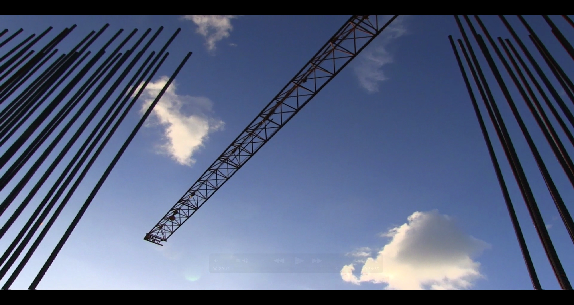
An image that depicts a futuristic representation of a neighbourhood in Beirut is used as a tool to instigate conversations with the current residents of one of its re-imagined alleys. The urban fabric of Beyhum Street has been organically developing since the end of the 19th century, and part of this alley has been continuously inhabited since the 1940s. It is both a place of residence and of work (small industries, crafts, shops). A number of adjacent plots within the alley now make up a huge construction site for a residential tower. Depicted in the futuristic image as complete and ready for habitation, the scale of the building ¬– besides being unrecognizable by the residents – begs for answers as to what it replaced and how it became a reality.
Camera: Juma Hamdo – Editing: Carine Doumit
Blue Ray | 40” | 2014 | French, English and Arabic with English subtitles

Golden Rush was the name of a ‘super night club’ that once existed in Ain El Mreisseh in Beirut. The film Golden Rush explores the city and the surge of people that move and vanish within it, using a language that evokes dream, traffic, seduction, and disappearance.
Music: Patrick Cowley and Christian Blumberg – Sound: Paul Paulun
Blue Ray | 8” | 2014
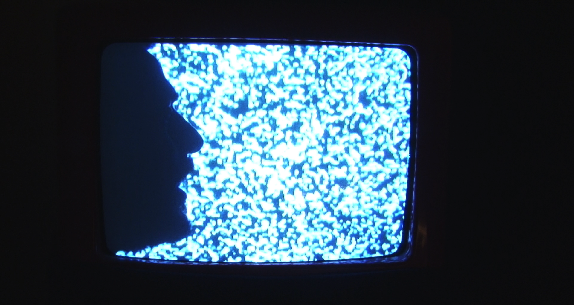
This work is a "performative" audio-visual tribute to the great talent of
Sheikh Imam Issa (1918-1995), a revolutionary leftist Egyptian composer/singer who spent 18 years in prison for speaking out against corruption, oppression and injustice in Egypt, the third world and beyond. A piano-forte, a smartphone, an old bulb T.V. and a few lines written on two masking-tape strips compose this vision. This video is also a document of how Arabic music could be played on a German musical instrument.
Blue Ray | 53” | 2013 | Arabic with English subtitles
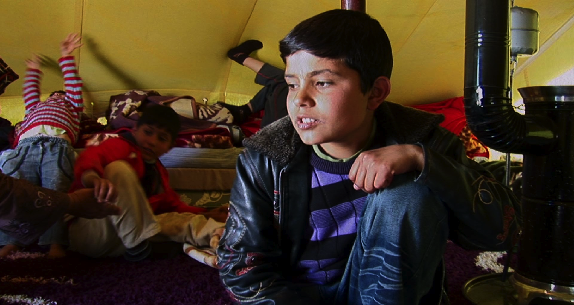
What can cinema do in face of the influx of images and information depicting Syria as a "country of evil “? This is the raison d‘être of the film—an invitation on a journey inside the counter shots of the Syrian news. It opens on Damascus, rocked by cries of freedom and the crackle of fire, and closes on a burial scene that turns into a resurrection. In between, the protagonists march in silence, or speak of their own dramas. From these snapshots unfold fragments of a history in the making, in which the protagonists are neither heroes nor victims, but men and women who happen to be in Syria, but could be elsewhere.
View Larger Map
Metropolis Empire Sofil
Ashrafieh, Sofil
Centre Sofil, Ground floor
Phone: +961 1 204080





